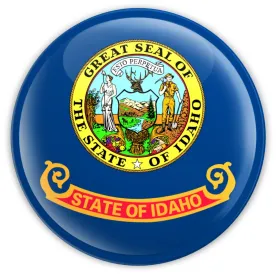State legislatures are still continuing to enact new changes to their states’ price gouging statutes. Some are expanding the scope of their laws, while others are tailoring the law or emergency orders in response to new issues that have arisen during the course of the COVID-19 pandemic. Idaho took a third tack and limited limit overbroad enforcement so that its law applied only to price increase, and not to price decreases that are deemed to be insufficient.
In November 2020, the Idaho Attorney General entered into a headline-grabbing settlement agreement with three gasoline retailers following an investigation into alleged price gouging. Attorney General Wasden alleged that the retailers sold gasoline at an “exorbitant or excessive price” in violation of Idaho’s price gouging statute.
The Attorney General’s investigation was unique because the restitution structure it created was based on the retailers’ margins. While some jurisdictions, such as the District of Columbia, use margins as a factor in analysis, the Idaho statute is silent on this point. It only referred to selling at “exorbitant or excessive prices.”
According to documents from the investigation, obtained by the Idaho Statesman, Attorney General Wasden focused primarily on the profit margin of the gas retailers. In early 2020 as the country began responding to the pandemic, wholesale gas prices fell by approximately $1.00 between February and April. The average retail gas prices in Idaho, however, remained relatively stable, falling only $0.50 from February to April 2020. This served as the predicate for the Attorney General’s investigation focusing on the gas retailers’ increased profit margin, even while price was falling. The retailers responded by pointing out that they lost 50% of their fuel sales during that period. Without admitting wrongdoing, the retailers agreed to a consumer restitution structure under which the retailers earn credits for selling gas at lower profit margins.
The Idaho Legislature took issue with the settlement, and on March 17, 2021, Governor Brad Little signed SB 1041 into law, amending the state’s price gouging statute. The legislation clarifies that only price increases are covered by the price gouging prohibition – not price decreases that are deemed insufficient. Second, the amendments stipulate that for the analysis of whether the price increase is “exorbitant or excessive,” courts “shall not consider any increase in the margin earned.” However, courts will continue to use other factors in the analysis: i) prices from before the emergency, ii) increased costs, iii) the duration of the emergency, and iv) a newly added provision for loss of sales or volume as a result of the emergency. These amendments appear to respond directly to the concerns raised by the gas retailers – using profit margins as the benchmark and ignoring significant decreased sales. The new law would prohibit investigations predicated solely on increased profit margins, like the 2020 retail gas sales investigation.
Idaho is not alone in updating its price gouging restrictions. States, such as California, have amended their price gouging rules as they grapple with applying statutes and emergency orders to changing conditions. We expect state enforcers to continue pursuing price gouging enforcement actions. Businesses should therefore continue to evaluate the factors states use in evaluating price increases, and should adopt best practices for documenting the bases for any price increases.





 />i
/>i


